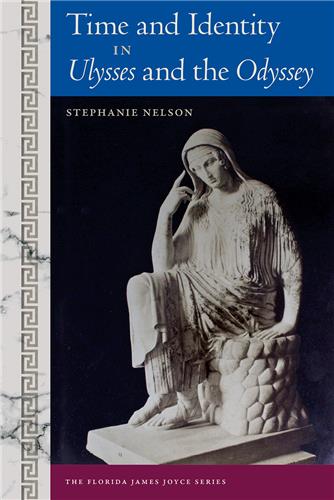Joyce, Aristotle, and Aquinas
Fran O'Rourke
Hardcover: $90.00
Paper: $35.00
Paper: $35.00
- Series: The Florida James Joyce Series
A rich examination of the influence of Aristotle and Thomas Aquinas on James Joyce
“Aristotle and Aquinas are ubiquitous ghostly presences in Joyce’s work. With meticulous and wide-ranging scholarship, O’Rourke provides readers with a treasure trove of insights into these appearances, touching on issues as diverse as identity, stability through change, the nature of beauty, and love. O’Rourke makes a powerful case that understanding these references is crucial to understanding Joyce.”—Martha C. Nussbaum, The University of Chicago
“We have long realized the importance to James Joyce of both Aristotle and Aquinas, but O’Rourke elucidates that significance with notable scholarly and critical insight and genuine brilliance. Without turning the artist Joyce into a philosopher, he takes him seriously as a thinker.”—Morris Beja, author of James Joyce: A Literary Life
“A beautifully constructed work, seemingly straightforward while full of complexities that convey the exuberance of the creation with grace and pleasure. . . . A marvelous scholarly study that offers, in lucid prose, profound insights into an important portion of the intellectual, imaginative, and creative contexts that inform the writings of James Joyce.”—From the foreword by Michael Patrick Gillespie, author of James Joyce and the Exilic Imagination
In this book, Fran O’Rourke examines the influence of Aristotle and Thomas Aquinas on James Joyce, arguing that both thinkers fundamentally shaped the philosophical outlook which pervades the author’s oeuvre. O’Rourke demonstrates that Joyce was a philosophical writer who engaged creatively with questions of diversity and unity, identity, permanence and change, and the reliability of knowledge.
Beginning with an introduction to each thinker, the book traces Joyce’s discovery of their works and his concrete engagement with their thought. Aristotle and Aquinas equipped Joyce with fundamental principles regarding reality, knowledge, and the soul, which allowed him to shape his literary characters. Joyce appropriated Thomistic concepts to elaborate an original and personal aesthetic theory.
O’Rourke provides an annotated commentary on quotations from Aristotle that Joyce entered into his famous Early Commonplace Book and outlines their crucial significance for his writings. He also provides an authoritative evaluation of Joyce’s application of Aquinas’s aesthetic principles.
The first book to comprehensively illuminate the profound impact of both the ancient and medieval thinker on the modernist writer, Joyce, Aristotle, and Aquinas offers readers a rich understanding of the intellectual background and philosophical underpinnings of Joyce’s work.
Fran O’Rourke, emeritus professor of philosophy at University College Dublin, is the author of Pseudo-Dionysius and the Metaphysics of Aquinas and Aristotelian Interpretations.
A volume in the Florida James Joyce Series, edited by Sebastian D. G. Knowles
- Sample Chapter(s):
- Table of Contents
- Excerpt
There are currently no reviews available












